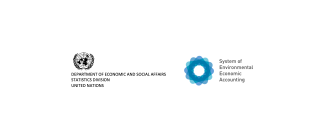
The UN Statistical Commission has adopted a new statistical standard - the ‘System of Environmental-Economic Accounting– Ecosystem Accounting’ (SEEA-EA). It provides an accounting framework to measure the contribution of ecosystems to our society, their condition (health) and the services they provide to us.
For example, following the SEEA-EA guidelines, we can calculate the value of the services that pollinators provide to our society. Pollinators – e.g. bees, butterflies and bumblebees – contribute to crop production in the EU at an estimated value of €3.7 billion per year. More importantly, we can determine not only where and how much of this service is being supplied by nature, but also where it is missing – the unmet demand. 50% of agricultural areas where pollinator dependent crops, in particular fruit trees, are grown, do not provide suitable conditions for pollinators (e.g. nesting sites). As a result, there are not enough pollinators. Restoring pollinator habitats in agricultural land has a potential to double the benefit from pollination.
Ecosystem accounts can also support Sustainable Development Goals (SDG) monitoring, for example, quantify open access to green spaces in cities (SDG 11 Sustainable cities and communities), changes in the extent of forest area, or land degradation and restoration (SDG 15 Life on land). European official statistics produced on the basis of the UN standard will be used for the implementation of the European Green Deal.
The adoption of the SEEA-EA handbook is the culmination of more than 3 years of work and discussions of more than 100 experts from a broad range of disciplines directly involved in writing the handbook, and many more who reviewed its drafts. Eurostat was strongly involved in the process – as the chair of the UN Technical Committee and Editorial Board that oversaw the development of the handbook and providing expert knowledge and support to the UN all along the way.
For more information
SEEA-EA handbook on the UN Statistical Commission site.
